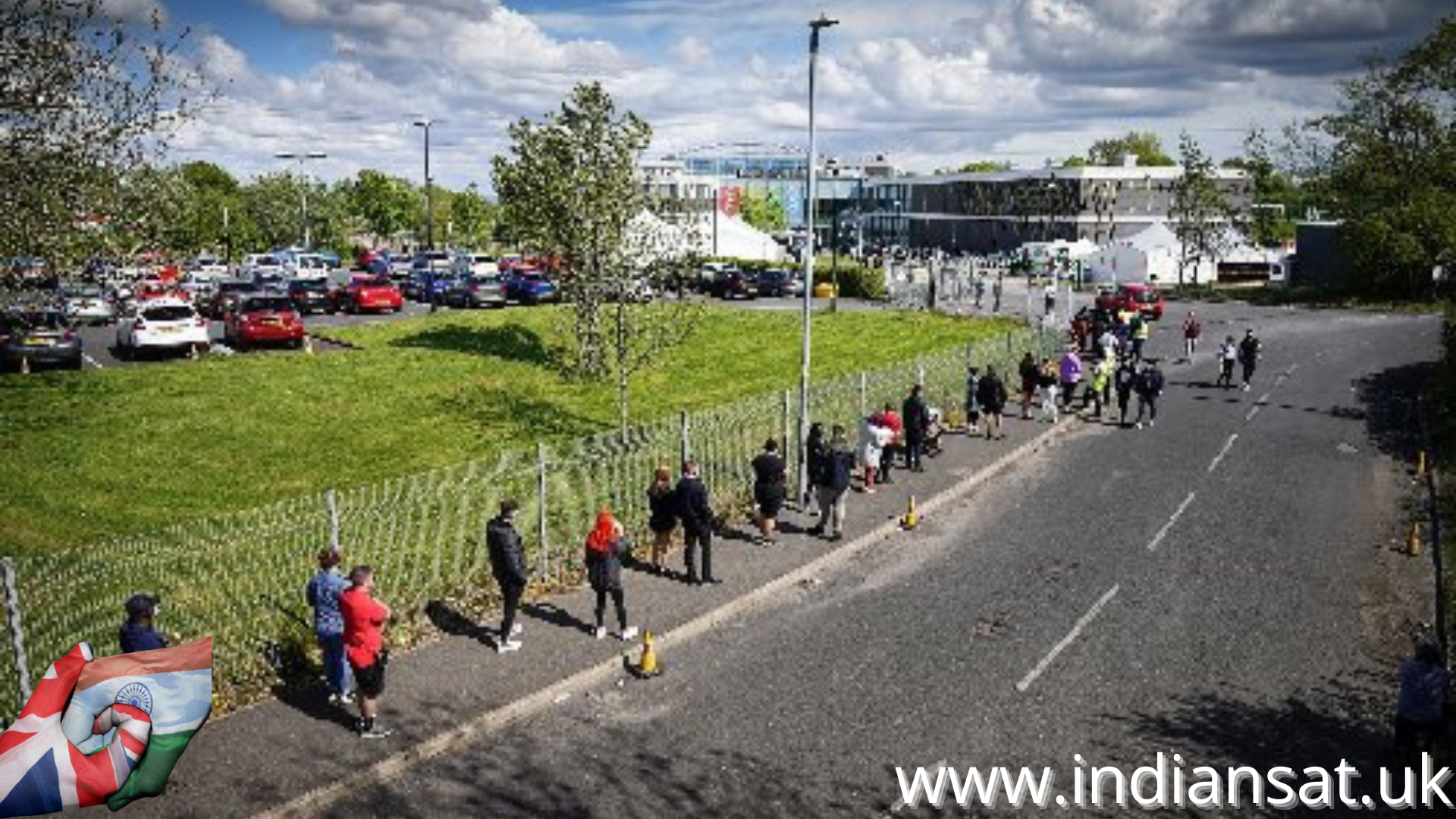But Britain runs a world-leading consortium of genetic sequencing laboratories that are constantly on the lookout for new “variants of concern,” and the arrival of the Indian variant has scientists and government officials here very concerned.
British health authorities have recalibrated their vaccination strategy. Whereas previously people had to wait 12 weeks between their first and second doses, that has been reduced to eight weeks. And the extension of eligibility to younger age groups is being accelerated.
Prime Minister Boris Johnson still went ahead with easing social distancing measures this week. Pubs and restaurants opened indoors on Monday. But the government has warned that the variant could delay plans for a full reopening June 21.
“We will continue to take very, very draconian action in respect of all variants coming from wherever around the world,” Johnson said while visiting a vaccination center Tuesday.
He added: “We will know a lot more in a few days” about infection rates, severity of illness and “to what extent our vaccine program has sufficiently fortified us.”
While the total number of new infections in Britain by the Indian variant remains small, the growth rate is high. Health Secretary Matt Hancock told Parliament that confirmed cases involving B.1.617.2 had doubled in five days and that as of Monday there were 2,323 cases in Britain. While hot spots have been identified in northwest England and in London, the variant has been detected in locations throughout the country.
Scientists advising the government say B.1.617.2 appears to be more infectious than the coronavirus variant first discovered in southeast England late last year, known informally as the Kent variant. They worry the variant from India could quickly overtake the Kent variant and become the new dominant virus.
It is not known whether B.1.617.2 produces more severe disease. It is also uncertain whether the three vaccines in use here — Pfizer, Moderna and AstraZeneca — will work as well against the new variant, although preliminary laboratory studies suggest they will.
Hancock told broadcasters that the majority of people in the hospital with coronavirus in the hot spot of Bolton, in northwest England, were eligible for a vaccine but hadn’t taken it.
Nearly 55 percent of people in Britain have received at least one vaccine dose and about 34 percent are fully vaccinated.
A strain that proves more contagious, just as social distancing measures are relaxed, could quickly move through the population that remains vulnerable. Modeling by scientific advisers to the government concluded that a new variant 30 to 40 percent more transmissible than the existing Kent variant could produce a third wave as high as the January surge in Britain.
And so the government has introduced surge testing in the variant hot spots, while redoubling efforts to get people vaccinated, including accelerating the timing of second doses for all people over 50. In Bolton, Blackburn and Darwen in northwest England, health-care workers began going door to door over the weekend to offer vaccinations.
In Scotland, vaccines will soon be offered to younger people, aged 18 to 39, living in Glasgow neighborhoods experiencing an outbreak linked to the Indian variant. The health minister in Wales said officials were also considering targeted vaccinations.
Hancock told the BBC that if the variant continues to spread, some areas could see local lockdowns return, though the government is loath to resort to that.
“The approach we’re taking in Bolton and Blackburn is to absolutely pile in testing and vaccinations to try to get on top of this,” Hancock said.
Sharon Peacock, director of the U.K.’s Covid-19 Genomics Consortium, which studies variants, said public health actions — such as testing, contact tracing and isolation of those infected — “buy us time” but that a highly transmissible variant carries “a biological passport for international travel and global spread.”
“What that means in practice will depend on vaccine efficacy and the number of people vaccinated. There is no evidence at the moment that vaccines won’t work,” Peacock told science journalists. But she cautioned that most laboratory studies so far have not focused on the important genetic changes of this new variation.
Johnson’s government has been criticized for being slow to put India on the “red list” of countries from which travelers are not welcome in British airports.
An investigation by the Sunday Times newspaper estimated that 20,000 passengers from India were allowed to enter Britain while Johnson delayed imposing a travel ban until April 23. The Times contended that he had not wanted to upset India’s prime minister while the two countries were negotiating a trade deal.
Britain’s Environment Secretary George Eustice brushed aside the idea, telling ITV on Tuesday, “We did put India on the list as soon as we saw an uptick in prevalence and well before the Indian variant was declared a variant of concern.”
![]()






